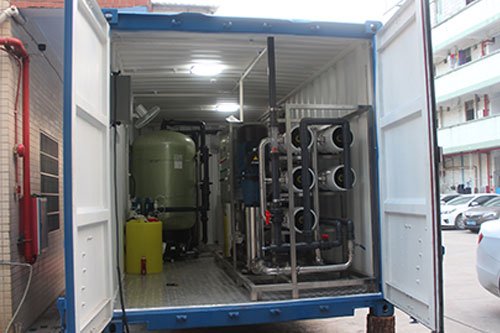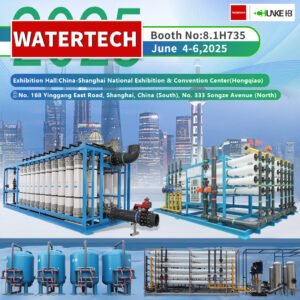Reverse Osmosis Water Treatment in Angola
CHUNKE projects of Reverse Osmosis Water Treatment in Angola including different types of water treatment systems.
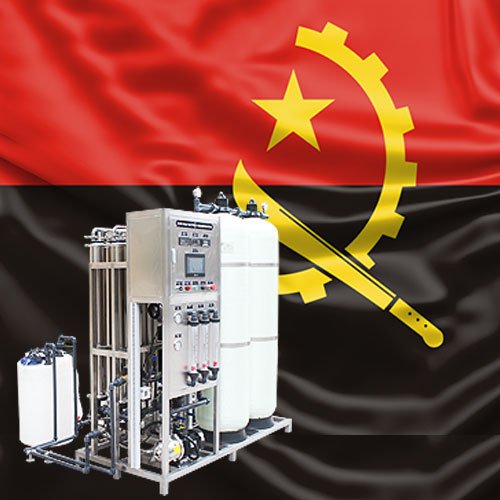
Angola is located on the western Atlantic Coast of Southern Africa between Namibia and the Republic of the Congo. It also is bordered by the Democratic Republic of the Congo and Zambia to the east. The country consists of a sparsely watered and somewhat sterile coastal plain extending inland for a distance varying from 50 to 160 km (31 to 99 mi). Slightly inland and parallel to the coast is a belt of hills and mountains and behind those a large plateau. The total land size is 1,246,700 km2 (481,400 sq mi). It has an Exclusive Economic Zone of 518,433 km2 (200,168 sq mi).
Angola is a member of the United Nations, OPEC, African Union, the Community of Portuguese Language Countries, and the Southern African Development Community. As of 2021, the Angolan population is estimated at 32.87 million.
Water Sources in Angola
Between 1970 and 2019, Angola renewable water resources remained stable at around 148.4 billion cubic meters per year.
- Renewable surface water: 145.4 billion cubic meters per year
- Renewable groundwater: 58 billion cubic meters per year
- Renewable water resources per capita: 4,663 cubic meters per year
- Irrigated Land: 4,570 thousand hectares
Meanwhile, CHUNKE provides wide range of filtration and economical solutions based on the Angola’s water resources and our water treatment in Angola becomes more popular.
Angola’s main water resources are:
- Surface water is water from river, lake which can be treated using different methods, such as Ultrafiltration Systems, Brackish Water RO accordingly.
- Desalination can be used for water from ocean, or sea source, which can be treated using Sea Water Reverse Osmosis Systems; Desalination Systems
- Ground Water or brackish water is from water located in the pore space of soil and rock “Borehole well”, which can be treated using Reverse Osmosis Systems, Borehole Water Filtration Systems, Well Water Filtration Systems, Chemical Dosing, UV Water Sterilizer accordingly.
- Government water supply, which could have high level of hardness or high level of chlorine, can be treated with Water Softener System, Media Water Filters.
Water Challenges & Shortages in Angola
Angola’s people are the driving force behind the country’s development ambitions and are at the center of every step forward for the country. But their potential and the country’s progress are too often hindered by water, sanitation, and hygiene issues that impact children and adults alike.
Access to safe drinking water, sanitation, and hygiene services is critical to human capital and economic development. Angola’s Human Capital Index score of 0.36, which reflects the amount of human capital that a child born today can expect to acquire by age 18, is below the average for Sub-Saharan Africa, reflecting the country’s high rates of childhood malnutrition and mortality. Of Angolan children under five, half are anemic, more than a third are estimated to be stunted, and nearly one-fifth are underweight. Diarrheal diseases are the main cause of mortality, which is closely related to the weaknesses of WASH services. These numbers are stark, and this evidence is helping to drive the government’s efforts to improve the water sector. CHUNKE reverse osmosis water treatment in Angola solutions solve your water problems.
We know that increased access to water, sanitation, and hygiene services (WASH) reduces malnutrition, morbidity, and mortality in children. They then grow up to need fewer health services and be able to study, learn, and grow unencumbered, which translates into important economic benefits throughout their lifetimes. Thus, investments in WASH are some of the smartest we can make to reverse the trend in child mortality and truly tackle diarrheal disease, especially in poor and marginalized communities where access to these services is extremely limited.
Seawater Desalination & Industrial Reverse Osmosis Systems
As droughts become more of a common occurrence, more regions throughout the world are turning to seawater desalination to meet their water objectives. Desalination seawater is a much more costly method of water purification than extracting water from other sources such as rivers, brackish water, water recycling, and water conversation. However, in many parts of the world, seawater desalination is the only option. Reverse osmosis systems are effective and more economical water treatment options, but come with a number of maintenance issues. The RO process includes ionic contamination from magnesium and calcium, organic substances, bacteria, viruses, scaling and insoluble particles.
Meanwhile, CHUNKE designs and produces water treatment systems that meet the World Health Organization requirements. So, our water treatment in Angola is suitable for drinking.
CHUNKE has over 15 years of experience as a global provider of B2B water treatment solutions for a variety of applications and industries, we offer a large selection of all types of reverse osmosis, ultrafiltration, electrodeionization and water treatment systems to meet your industrial needs accordingly. CHUNKE’s extensive global experience in engineering and manufacturing allows us to pre-engineer and customize water treatment and reverse osmosis systems to meet a wide range of customer requirements and specifications.
CHUNKE Projects of Water Treatment in Angola
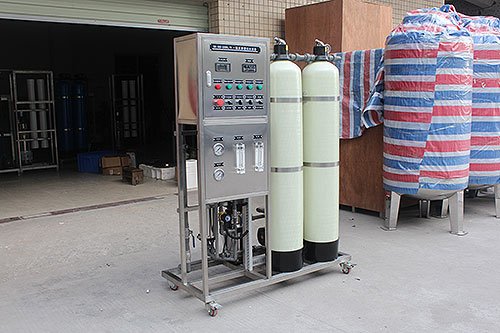
250LPH Reverse Osmosis System for Borehole
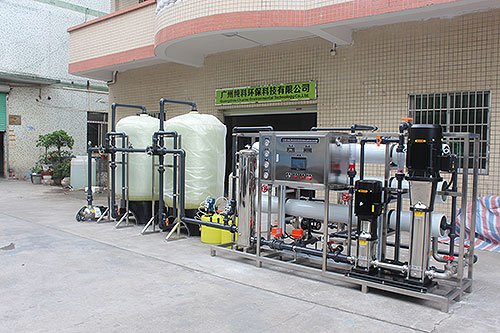
5000LPH Brackish Water Desalination System
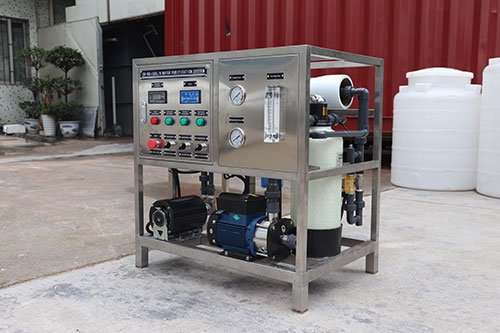
100LPH Reverse Osmosis System for Drinking
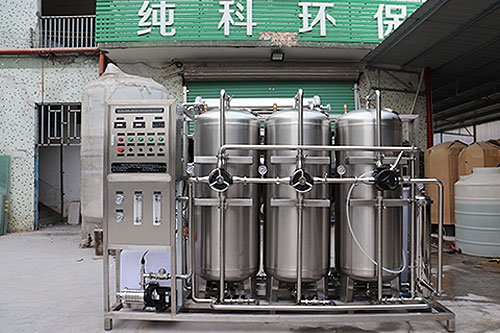
3000LPH RO Water Purifier for Hospital
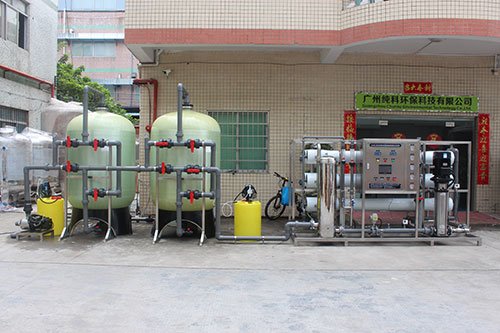
10000LPH Reverse Osmosis Plant for Water Bottling
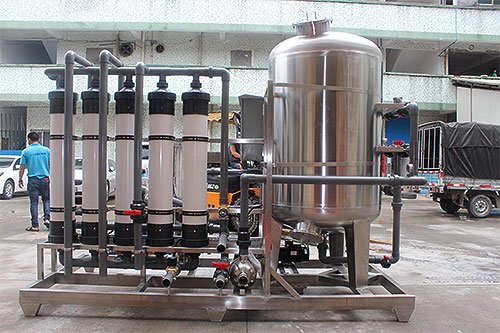
10000LPH Ultrafiltration System for River Water
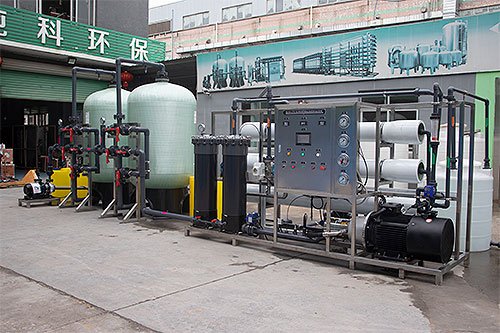
100TPD Seawater Desalination Ssystem - SWRO
